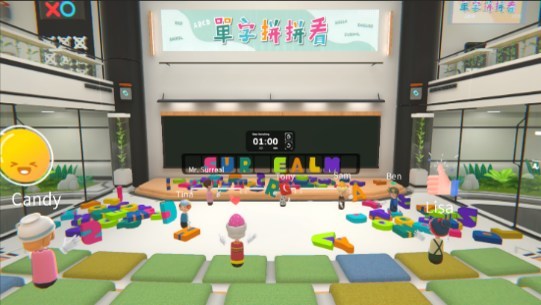
The evolution of education in the U.S. is noticeable – from blackboards and overhead projectors to whiteboards and slides on a PowerPoint. The next phase is to utilize the metaverse with more digital savvy generations.
However, there are countries out there not as fortunate as the U.S., being stuck 20-30 years in the past. Taiwan is observed as one of those countries. Andy Peng, the CEO and founder of Surreal, is on a mission to facilitate the digitalization of the education industry in Taiwan and nurture a new generation of educators and equip teachers with new digital skills through the XR technology.
Surreal, supported by the National Development Council, is doing that with the SURREALM platform.
The learning platform gives students an interactive virtual learning environment where they have a sense of togetherness, presence and playfulness. Users interact in a lively avatar image as well as manage their class schedules through the website and view a complete record of their learning history, test results and more.
SURREALM also combines emojis that most students are familiar with to give feedback. Additionally, the grouping function allows students to discuss and collaborate in virtual classrooms, as well as communicate and play freely during break time.
Students are not the only ones who benefit from the virtual platform. For teachers, SURREALM enables more efficient use of limited resources and time. For example, in the VR classroom, teachers present the material in various ways to achieve the best possible learning outcomes.
SURREALM also provides comprehensive lesson preparation, classroom management and assignment functions, allowing lecturers to more easily control the progress of teaching.
“In the metaverse era, educators must have to learn new ways to teach digital natives,” said Peng. “Children are incredibly creative and imaginative with digital technology.”
The SURREALM results are recognized among other APAC countries. The next step for Surreal is to actively engage with other Asian countries such as Malaysia, Singapore, and Japan.
Edited by
Erik Linask